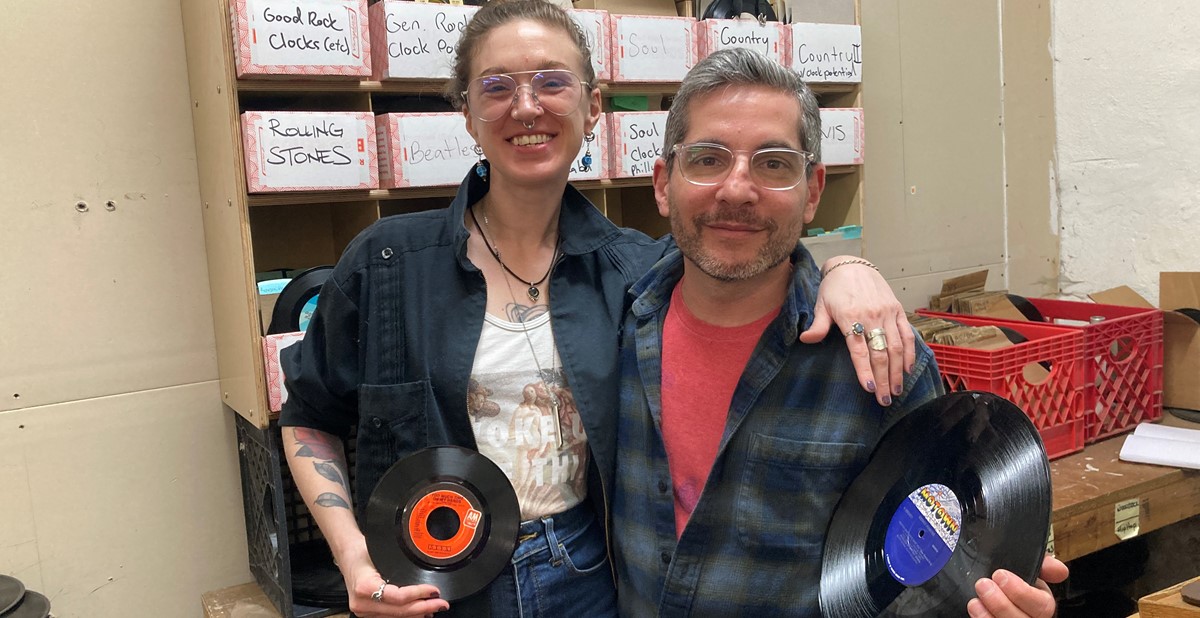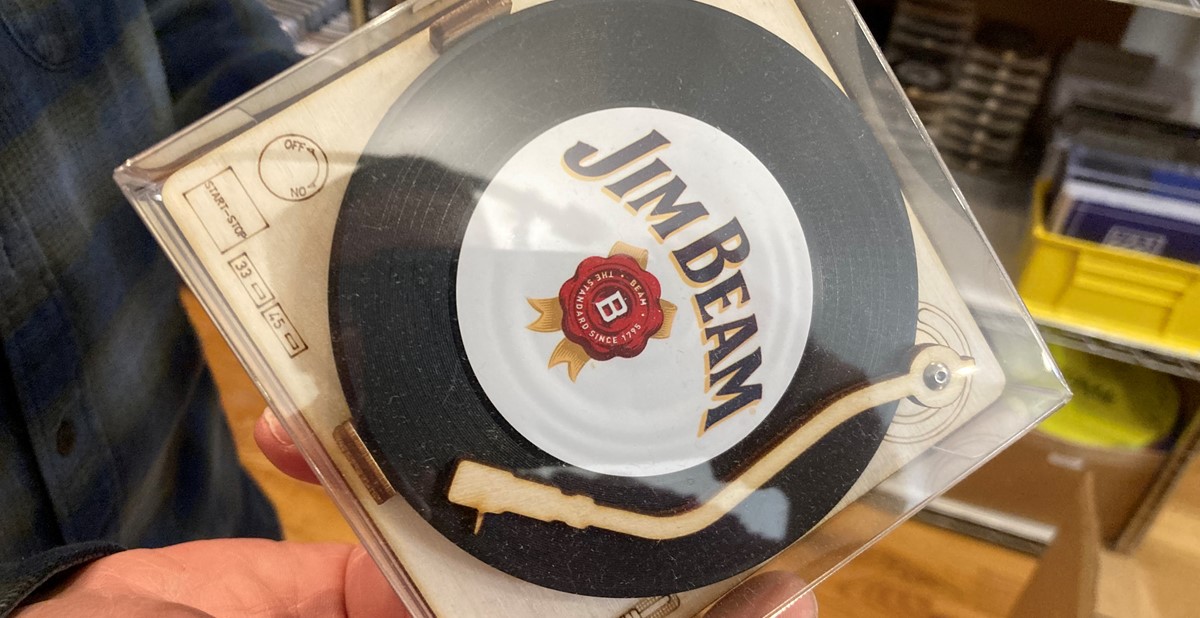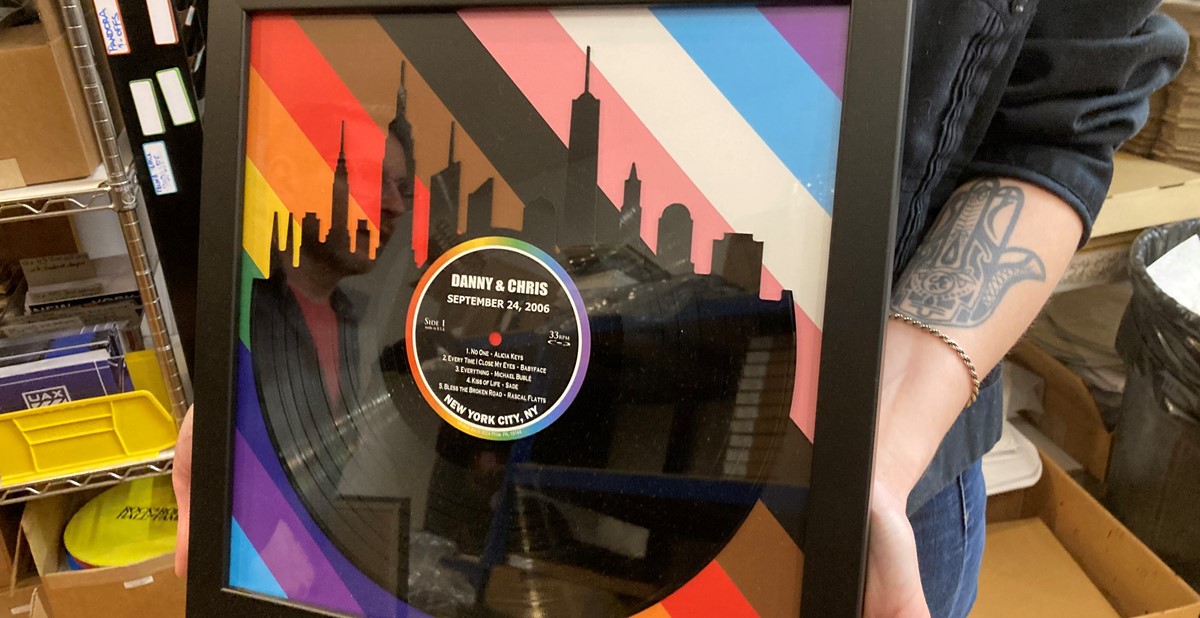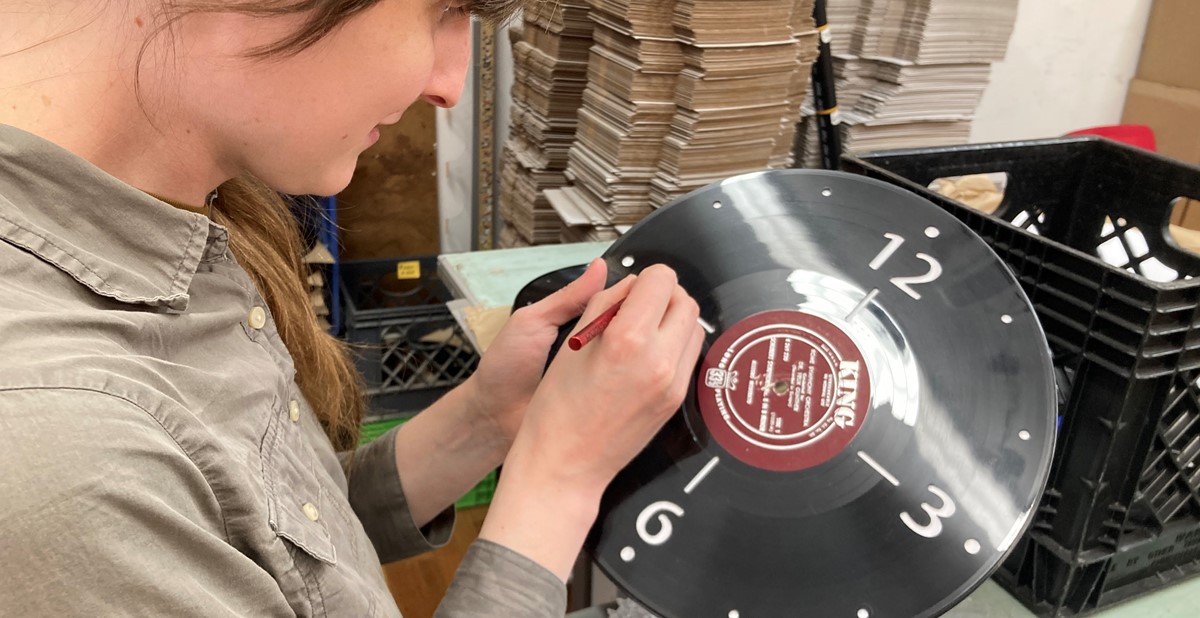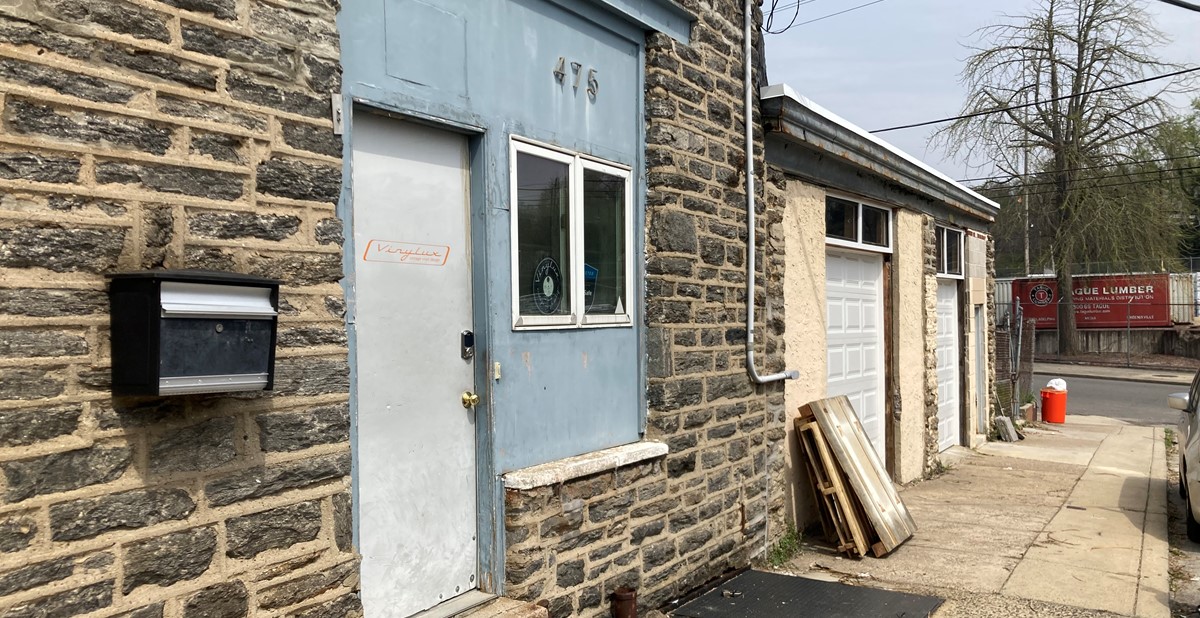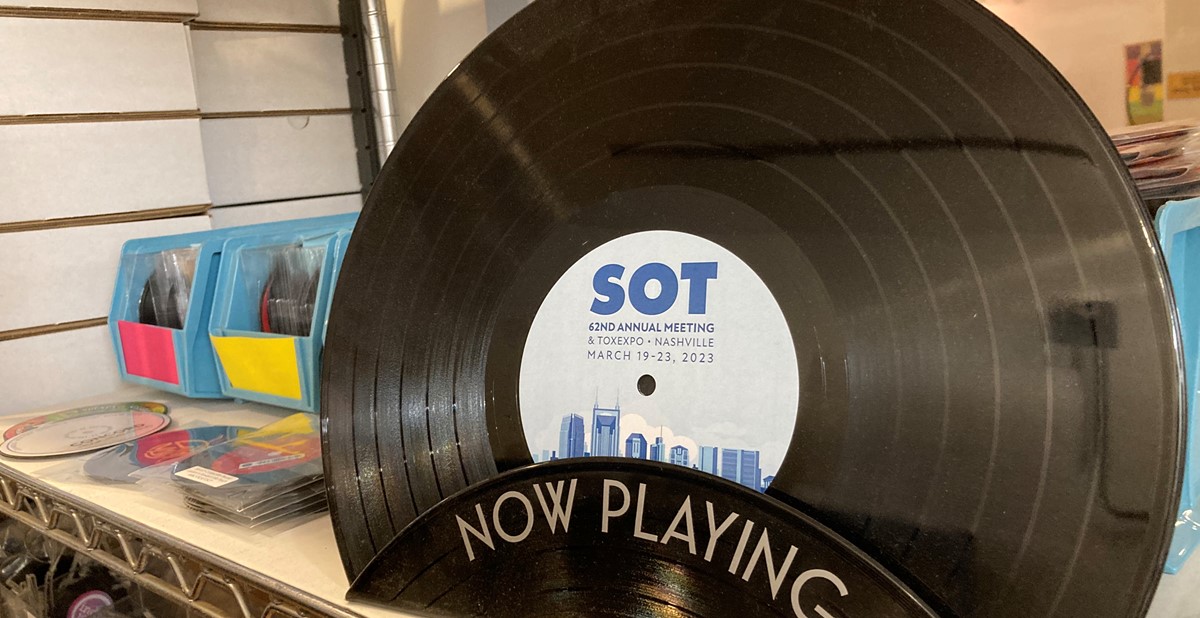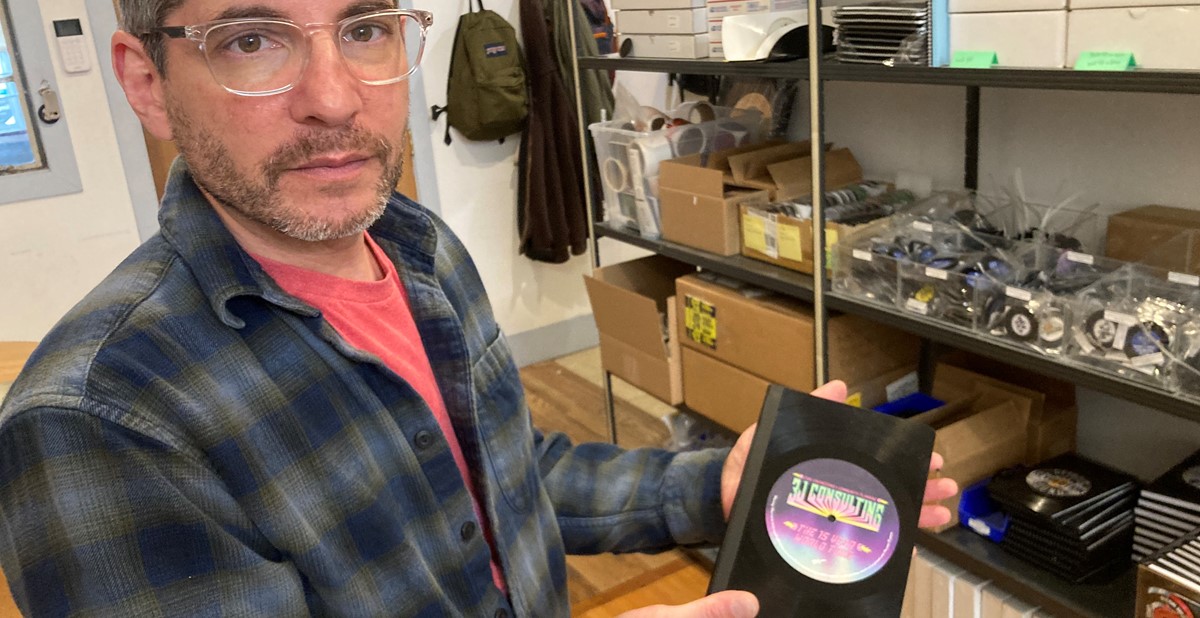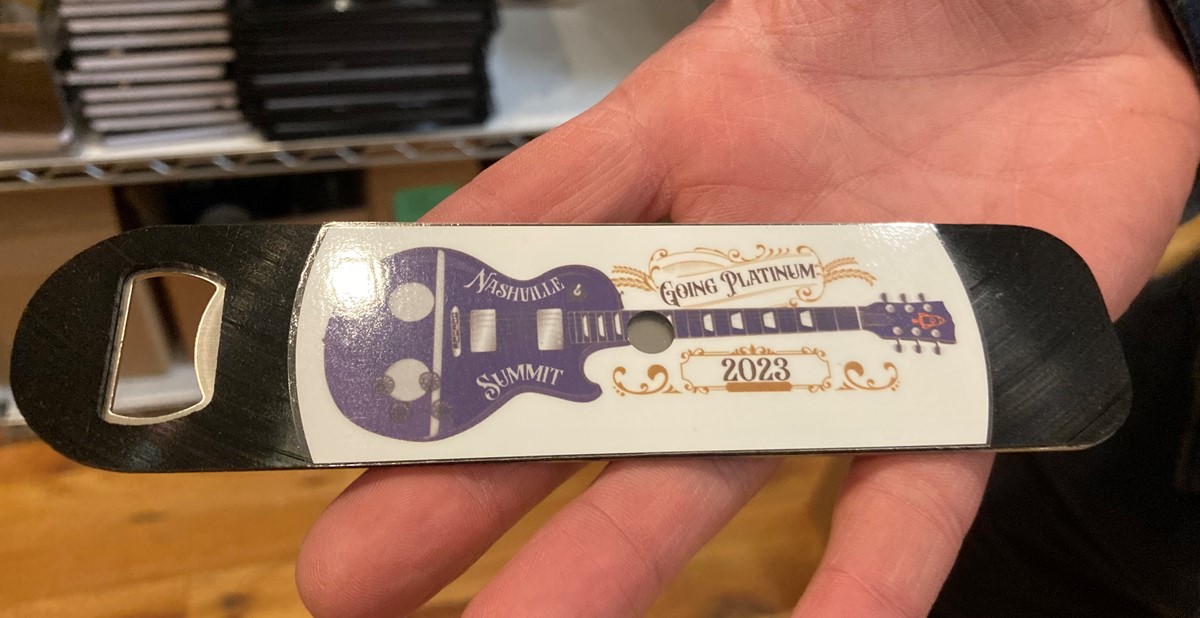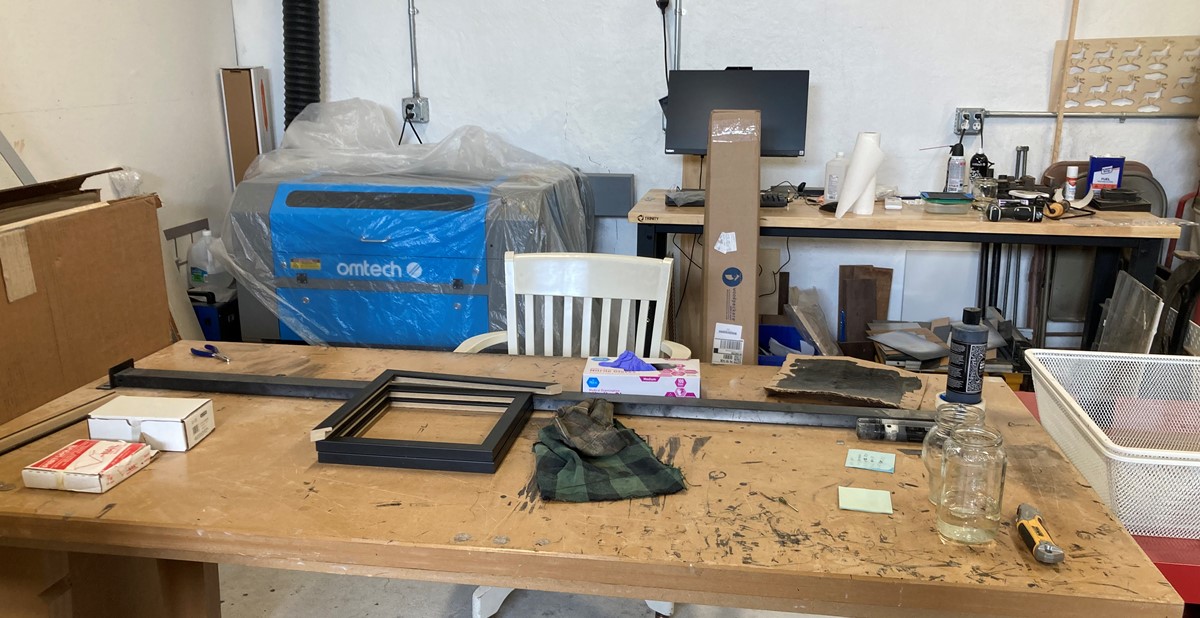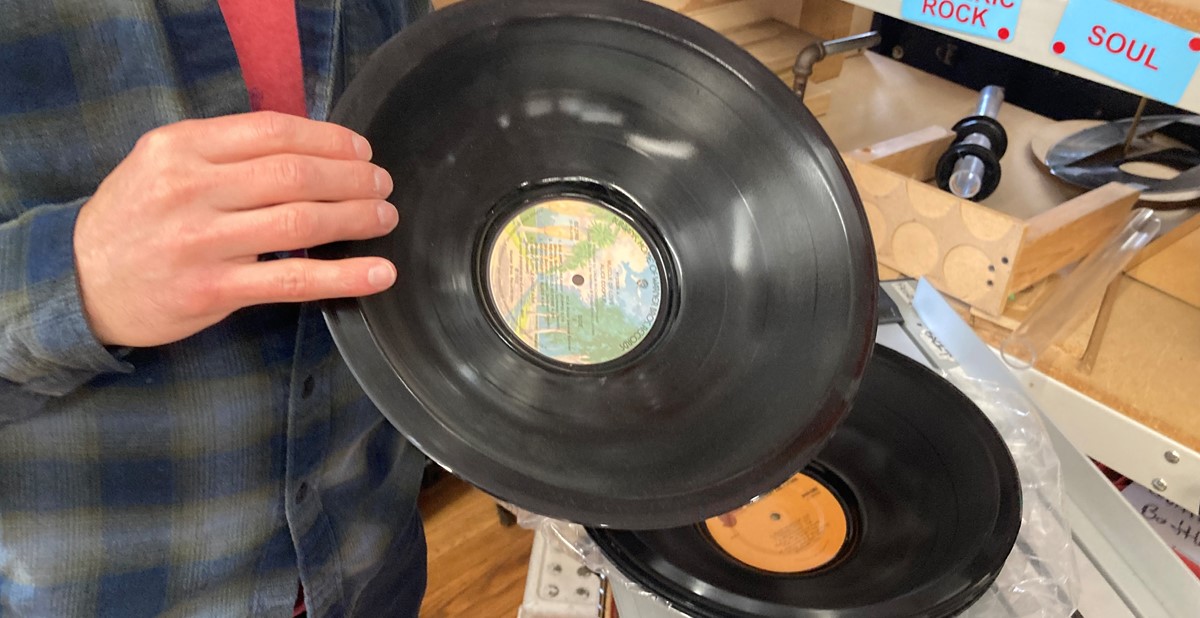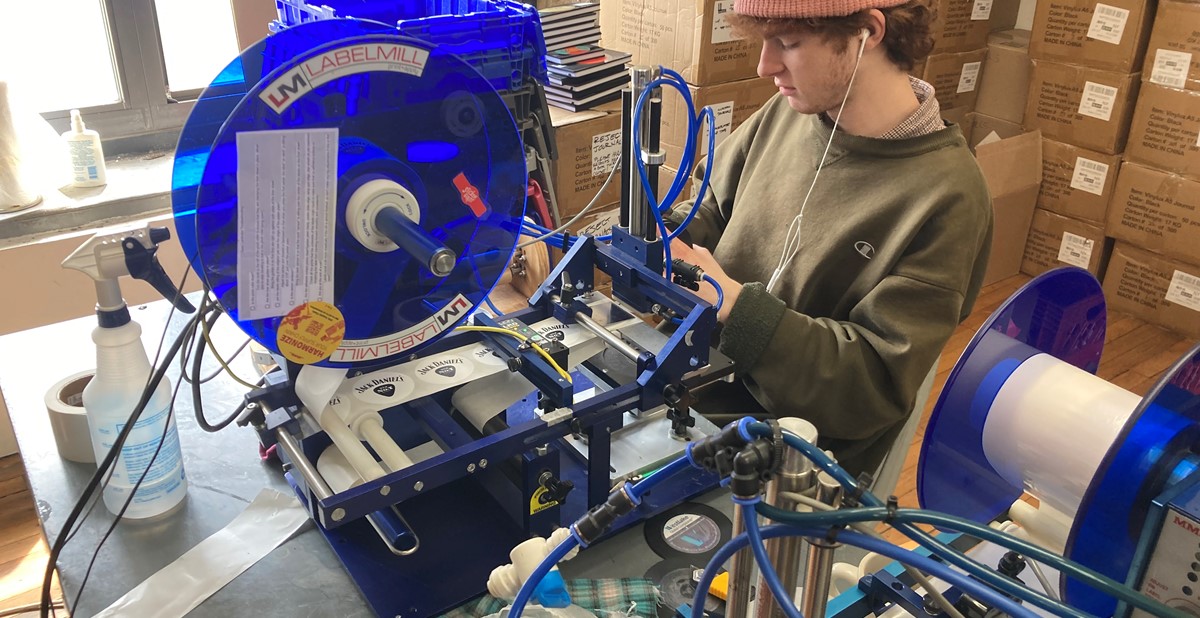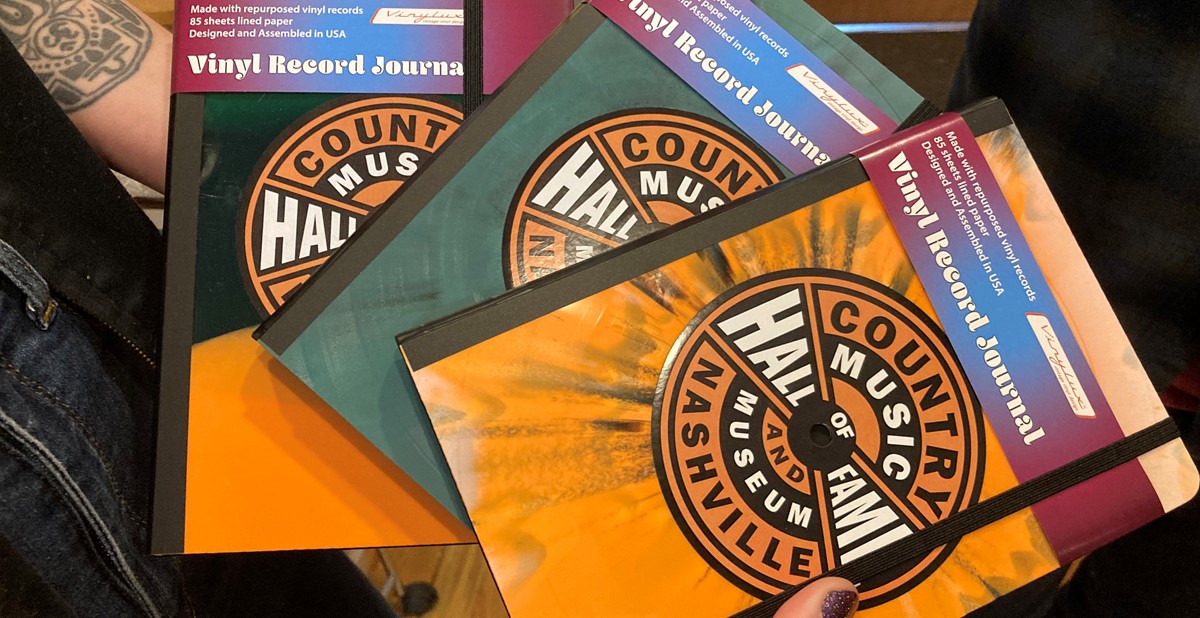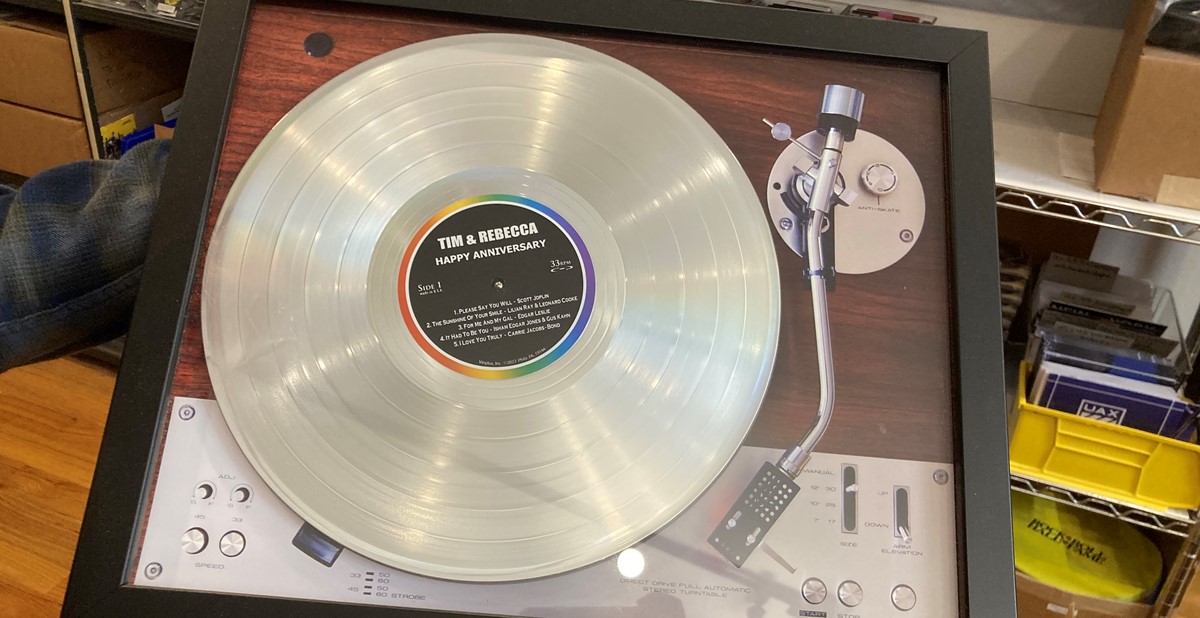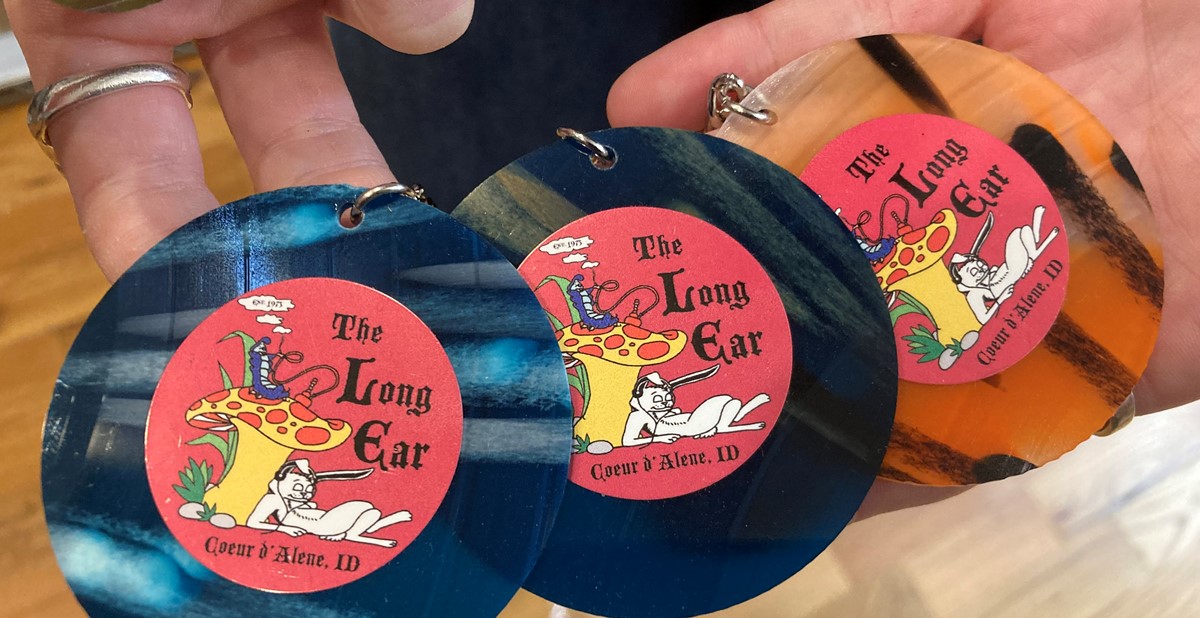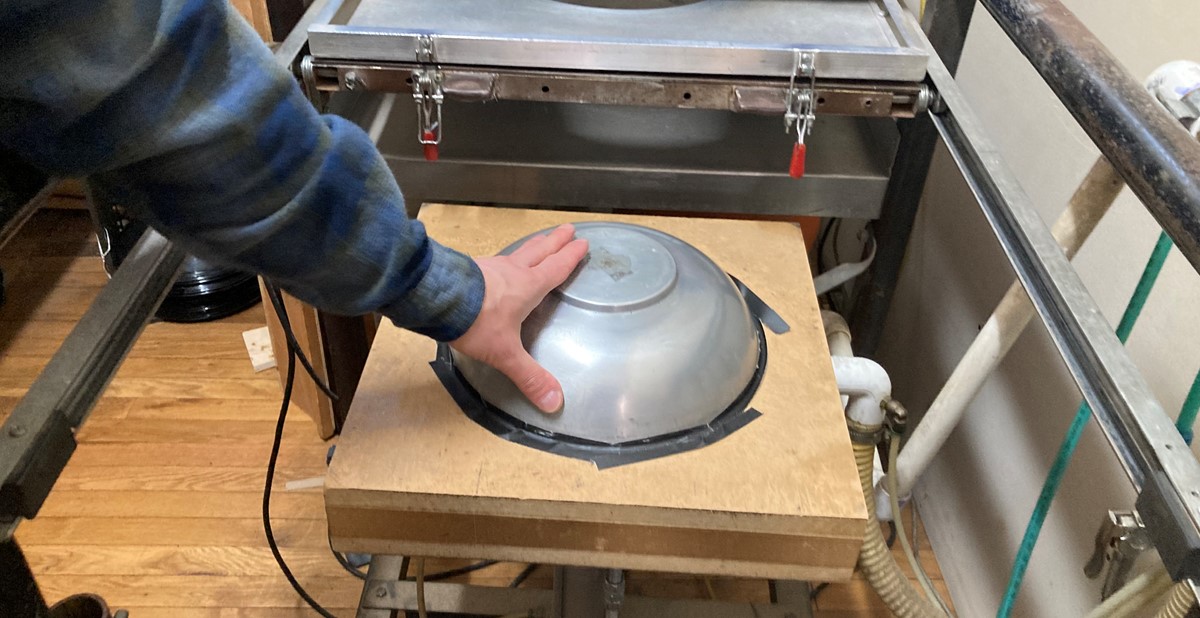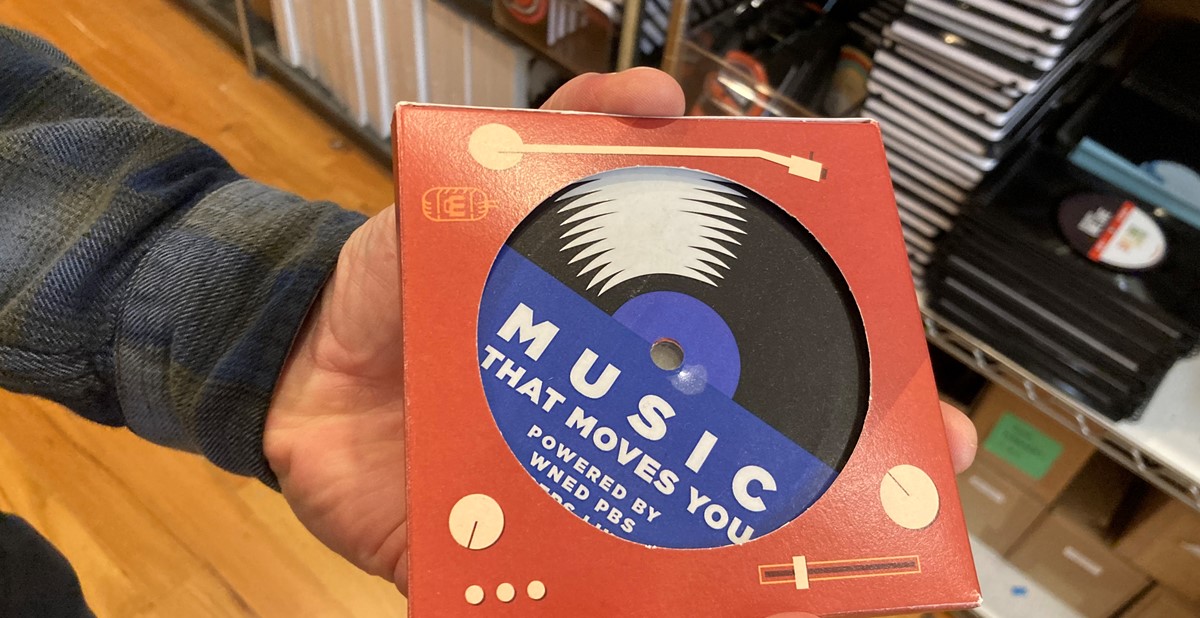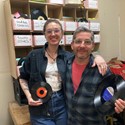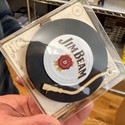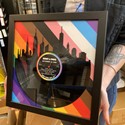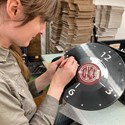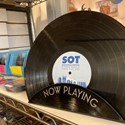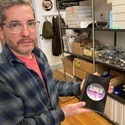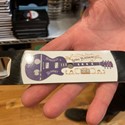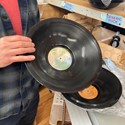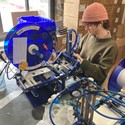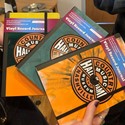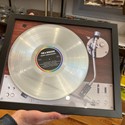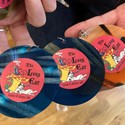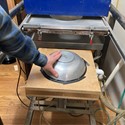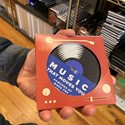Record Remix Cashes In On Vinyl’s Resurgence
It’s 6 a.m. and a line of eager music lovers has already wrapped around the parking lot.
The doors to the record store won’t open for another four hours, but teenagers, college students, their parents and even grandparents don’t want to miss out on the limited addition titles available, such as Thin Lizzy’s “Live and Dangerous” and Cheech & Chong’s “Up In Smoke.”
This isn’t some hazy memory from the 1970s – this is what Deon Borchard, co-owner of The Long Ear, anticipates this Saturday, April 20, at Record Store Day.
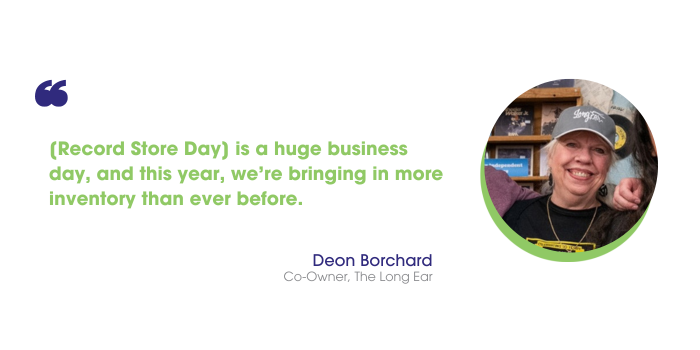
“It’s a great international holiday celebrating the uniquely important niche that independent record stores hold and the part that we play in introducing and championing recorded music in our individual communities,” says Borchard, who, along with her husband Terry, founded the music store 50 years ago in Orange County, California, before relocating to Coeur d’Alene, Idaho in 1985.
“Since we opened with 400 albums, 88 8-track tapes and three cassettes in 1973, vinyl has made a tremendous resurgence,” Borchard says.
- In 2022, vinyl records outsold CDs in the United States for the first time since 1987, selling 41 million units against 33 million for CDs, according to the Recording Industry Association of America (RIAA).
- Last year, 43 million vinyl records were sold in the U.S. (six million more than the number of CDs), generating $1.4 billion in revenue and marking 17 consecutive years of growth, RIAA reported.
Borchard was blown away the first year that Record Store Day, which began in 2008, overtook Christmas Eve for the number of sales in a day.
“It’s a huge business day, and this year, we’re bringing in more inventory than ever before,” Borchard says. “Our amazing crew work into the late Friday night hours, setting up special aisles of Record Store Day albums – and piles of freebies – all for the end result of keeping our customers and music friends happy and safe.”
A New Spin On Promo
Not only will those early bird customers get first dibs on album selection, they’ll also be able to scoop up vinyl key chains made specifically for Record Store Day by Vinylux, a Philadelphia-based supplier dba Record Remix (PPAI 706772, Standard-Base) in the promotional products industry.
Operating out of a small workshop in the Germantown neighborhood, Record Remix recycles and reuses approximately 250,000 vinyl records each year, transforming them into custom imprinted coasters, journals, clocks, luggage tags, bottle openers, notepad holders and more.
- The company also provides framed records for recognition programs, such as milestone anniversary awards for Sirius XM Pandora.
“We’re kind of making the greatest hits of the promotional products industry, but with our own unique spin,” says owner Jeff Davis, a proud product designer-turned-entrepreneur.
Had the pleasure of visiting @VinyluxStudio today, one of the coolest #promoproducts suppliers around.
— John Corrigan (@JohnCPPAI) April 10, 2024
Founder Jeff Davis gives a mini tour of the Philly-based workshop. #RSD24 #RecordStoreDay pic.twitter.com/ZDc1yKLlKV
The Massachusetts native credits clothing retailer Urban Outfitters with “almost single-handedly” leading vinyl’s comeback after partnering with electronics manufacturer Crosley to provide customers with vintage radios, turntables and accessories.
“Now, basically every teenager in America has a turntable,” says Davis, whose company has certainly benefitted from vinyl’s resurgence.
- Davis says Vinylux generated $1.1 million in sales in 2023.
- He anticipates $1.2 million in sales for this year.
The company receives new records from record pressing plants that have overruns, misprints, test pressings, etc. “The vinyl industry is booming right now – every plant in the country is running triple shifts,” Davis says. “With that amount of volume, they end up with a lot of waste.”
Vinyl records consist of polyvinyl chloride (PVC), which is challenging to recycle due to containing hazardous additives that can potentially release toxic chemical emissions. Davis says that large-scale recycling companies don’t like to handle the material because the labels being permanently fused to the vinyl contaminates the recycling process if they’re going to transform the material into vinyl siding or parking bumpers.

Meanwhile, Record Remix can either reuse records without changing the label, as it often does for coasters – its most popular product – or simply rebrand the label with its client’s artwork, as it recently did for a project involving 3,500 journals for the “Bob Marley: One Love” film.
“Our eco-friendly, sustainable products are cool – they’re not made of brown paper pulp,” says Amy Martin, vice president of Vinylux/Record Remix. “You can do full color, so they’re visually appealing. It has that hook that a lot of these other recycled products don’t have.”
Developing A Greener Future
After earning a Bachelor of Fine Arts degree from New York University’s Tisch School of the Arts, Davis spent the latter half of the ‘90s working in theater and television as a charge artist, carpenter and sculptor.
One day during breakfast, he was staring at the type of sugar dispenser that you’d find at an old-school diner and wondered how it was created. That curiosity ate at him until an acquaintance suggested that Davis was a product designer who just didn’t know it yet.
So, he enrolled in the Rhode Island School of Design (RISD) in 2000 to find out. Around that time, the conversation about sustainability and ecological responsibility was just starting in academia, Davis says.
Perhaps the most fascinating aspect of @VinyluxStudio is that owner Jeff Davis built most of the machines that his company uses to make its products. #RSD24 #RecordStoreDay pic.twitter.com/hoMw3056lJ
— John Corrigan (@JohnCPPAI) April 11, 2024
“Some professors suggested that if we could find a creative reuse for obsolete materials it’s a great service because you’re not making anything fresh, cutting down trees or manufacturing new plastic. You’re just taking what already exists and giving it a new reason for being,” he says.
As part of his thesis project, Davis bought a handful of vinyl records from The Salvation Army and tried bending, cutting and fusing them at the school workshop. During the experimentation, he used a plastic molding machine to make bowls out of the records, which impressed his professor. After gauging interest from other students and local retailers, he began selling his creations.
In 2002, he left grad school with not only a master’s, but also a burgeoning business.
Grand Slam Opportunity
Although Vinylux wouldn’t formally enter promo until 15 years later, Davis realized the market’s potential after receiving a 30,000-piece order for the 2005 Major League Baseball All-Star Game.
A distributor named Clint Hart asked if he could do custom imprinting on coasters for a music tie-in because the event was being held in Detroit. Davis hadn’t ever considered customization but accepted the order because it coincided with a serendipitous event just one week prior.
A fellow RISD grad was working at Vermont Public Radio, which had just collected 175,000 records for a fundraiser and had only sold 100,000, and asked if David wanted the remaining records. So, he rented the largest truck “that you can drive without a commercial driver’s license,” drove six hours to the station, loaded up and drove back home.
A week later, the All-Star Game order came in.
Amy Martin, responsible for growing @VinyluxStudio’s promotional products segment (as Record Remix), joins the tour to reveal their latest project for a major client. #RSD24 #RecordStoreDay pic.twitter.com/V7qBrmdk6y
— John Corrigan (@JohnCPPAI) April 11, 2024
“That job taught me a lot about promo, as well as how to do things in high volume,” says Davis, who, as a result, ended up buying a shrink-wrapping machine and hiring workers.
Toward the end of the decade, Davis’ bookkeeper suggested that the company lean into promo because orders were usually 10x the volume of retail orders. “There’s less demand on the shop because it’s the same item being made over and over again,” Davis says. “It also allows us to use any record that comes in the door. We don’t have to be constantly fishing for Beatles, Stones and Pink Floyd. It can be anything because we’re rebranding the labels.”
Entrepreneurial Duet
Davis says that he and Martin built the promo division together and that 65% of the company’s annual revenue now comes from promo.
- Martin, who earned a Bachelor of Fine Arts degree from the Maryland Institute College of Art, joined the company seven years ago.
In addition to attending trade shows, she designed the Record Remix website, created the promo sales materials and has continued developing relationships with distributors.
“The products are so cool that they kind of sell themselves,” Martin says. “But people really need that art support, so my degree helps me understand what they’re looking for.”
- In fact, all 13 employees at Vinylux, including Davis’ 20-year-old son Tyler, come from either an art or music background. (Music is in their blood: both Davis men play guitar, and Tyler also plays drums.)
The company relies upon the Greater Philadelphia Cultural Alliance, an arts and cultural advocacy, research and marketing organization, to fill its staffing needs through its job bank. Because familiarity with printing artwork is extremely important, Davis is naturally inclined to hire artists.
Behind the scenes of @VinyluxStudio #RSD24 #RecordStoreDay pic.twitter.com/C4XW6x1xcd
— John Corrigan (@JohnCPPAI) April 11, 2024
“This is run more like a high-volume art studio than a factory,” he says. “The sensibility of our product line is that it is artisan made. It’s not 10,000 water bottles being UV-printed overnight. It’s been a challenge for us in this industry where that is the expectation. We’ve done our best to get everything to a 10-to-12-day lead time, but it’s a challenge because we’re hand-making our product from recycled materials.”
Record Remix’s penchant for quick turnaround times is why Alana Wexler, vice president of sales at SMI Promotional Merchandising, considers the supplier a true partner.
- The Valencia, California-based distributor specializes in concert merchandise, including VIP gift packages for shows featuring household names like Paul McCartney.
“Even though tours are planned months in advance, merch is one of the last things to be decided,” Wexler says. “Amy and Jeff are able to turn things around in crazy amounts of time. I’ll call them on a Monday, asking for 1,000 coasters to be sent out by Friday, and they make it happen.”
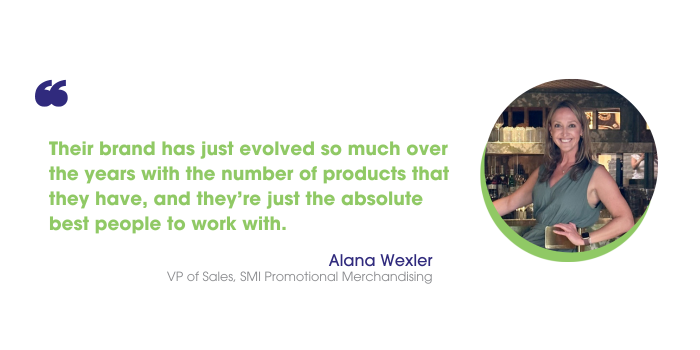
Wexler recalls her first project with Record Remix being coasters for the 2014 Rock & Roll Hall of Fame Induction Ceremony. In addition to the items being eco-friendly, which appeals to many of her clients, the coasters came in cool packaging: sleeves designed like vinyl records.
“Their products have a really high perceived value,” Wexler says. “Their brand has just evolved so much over the years with the number of products that they have, and they’re just the absolute best people to work with.”
‘Incurable Tinkerer’
Davis moved his family and his company from New York City to Philadelphia 17 years ago.
“Philly afforded us a lot more financial opportunities,” he says. “Whereas I was renting these small studios in New York, I was able to buy this building. To run a business sustainably, you need a dedicated location for it, and I knew there was a lot of available industrial space here.”
An astute businessman, Davis has taken advantage of everything the “City of Brotherly Love” has to offer, such as a grant for equipment upgrades and a coterie of local laser-cutters, woodworkers, bookbinders and other manufacturers who he outsources to.

“A lot of our products were actually designed by me hanging out in somebody else’s factory and going, ‘Oh, you have a machine that can punch holes in cardboard. I wonder if it’ll punch holes in a record.’ So, we try it. Now, all of our spiral binding is done by sticking our records in these machines,” Davis says.
The self-described “incurable tinkerer” is always trying to grow the business, either by expanding into the building next door, building new machinery inside the workshop or conceiving an innovative use for a vintage form of physical media.
- For example, at The PPAI Expo 2024, Record Remix introduced the turntable coaster holder. Made from laser cut plywood that features a movable tonearm, the four-coaster sets are packaged in a crystal clear soft-fold box.
“It’s mid-April and we’re just tapering off from the rush of Expo,” Davis says. “We hear from attendees that this is the first creative, new, interesting idea that they’ve seen. The challenge and mission for us is that when we show up at a trade show, we have something new to show. We’re constantly introducing new products and options and investing in in-house technology and equipment usually to satisfy some personalization or customization request.”
The success of Record Store Day has also made the PPAI Expo easier to navigate, Martin adds.
“When we first went, distributors would say ‘This is a cool niche, but do kids even know what this is?’ Now, our job is easier because records are trending. We’re seeing a lot of exciting success from the fact that vinyl is back,” Martin says.


